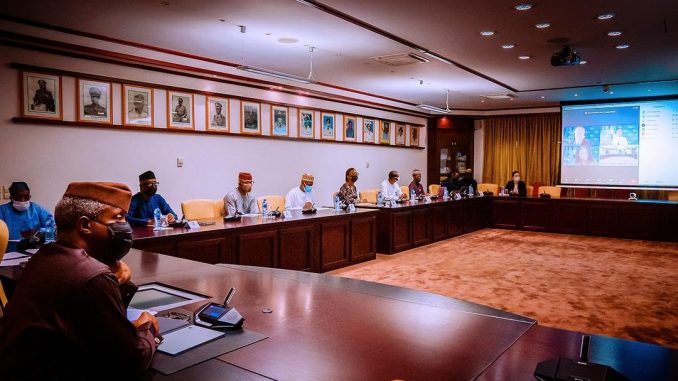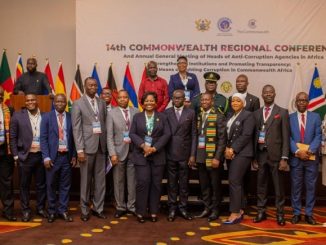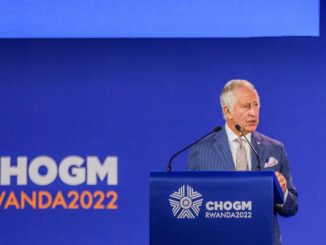
By Oluwafemi Popoola
The Federal Government in partnership with the African Development Bank (AfDB) and other stakeholders has concluded plans to commence a Special-Agro Industrial Processing Zones (SAPZ) Programme aimed at concentrating agro-processing activities in demarcated areas to boost productivity and integrate production, processing and marketing of selected commodities.
Under the programme, the Nigerian government, in collaboration with the AfDB and working with other stakeholders such as the International Fund for Agricultural Development (IFAD) and the Bank of Industry, will demarcate areas across the 36 States and the FCT where the agro-processing centres will be established. About 140 of such centers are being envisaged across the country.
The agro-processing centres will be provided with basic infrastructure such as water, electricity and roads as well as facilities for skills training. Small-holder farmers in the catchment areas will be linked to markets across the value chain.
To set off the plan in the opening phase, 7 States representing most of the geo-political zones in the country have been selected in addition to the Federal Capital Territory. The States are Ogun, Oyo, Imo, Cross River, Kano, Kaduna, Kwara. All the other States in the country would be added later as the scheme progresses.
The programme aligns with the Economic Sustainability Plan and the Next Level programme of the Buhari administration regarding agriculture.
Briefing Prof. Osinbajo on the progress made so far in the implementation of the programme, AfDB’s Acting Vice President, Agriculture, Human and Social Development, Ms Toda Atsuko said the bank in collaboration with other stakeholders was ready to start the first phase of the Special-Agro Industrial Processing Zones (SAPZ) Programme, having completed a joint appraisal mission across the 36 States with the International Fund for Agricultural Development (IFAD).
Atsuko who commended the Buhari administration for its efforts said the success of the project is hinged on the political will of the Buhari administration, adding that the plan will create jobs, and leverage on technology with significant youth participation.
ALSO READ: Don’t end international funding for gas, Osinbajo tells world leaders
“I am very pleased to see that work has advanced and quite a bit is already being done. There is a need to synergize really concretely with Green Imperative (which is the partnership with the Brazilians), I think there are areas where these two programmes can complement each other,” according to the Vice President.
According to him, “I am absolutely certain that we have enough room given the sheer size of the agric enterprise in Nigeria, we have enough room to accommodate these programmes, especially when they are synergized in a way that it will benefit the entire sector.”
Emphasizing the need to also ensure effective synergy with the 36 States, the Vice President said “again, synergy will be crucial with the States because there is no way of getting this thing done without a close collaboration with the States because the States are where these projects will be cited.”
Prof. Osinbajo then commended the efforts of all stakeholders on the project noting that “this is a very good progress that we have made and we must ensure this actually works. Particularly with the collaboration of the Ministry of Agriculture, and Ministry of Industry, Trade and Investment.”
Earlier in his remarks, the Minister of Agriculture and Rural Development, Alhaji Mohammed Nanono welcomed the partnership to establish agro-processing zones across the country, noting that it would be to the benefit of farmers and the agric sector at large.
He also emphasized the need for synergy of ideas and efforts to ensure that the Special-Agro Industrial Processing Zones (SAPZ) Programme complements the Green Imperative initiative of the Buhari administration.
On his part, Associate Vice President of the International Fund for Agricultural Development (IFAD), Mr Donal Brown who joined virtually, said the organization would co-finance the project with the AfDB with the view to creating an important opportunity for small-holder farmers in Nigeria to improve their farm yields, enhance their income and livelihoods. Already, IFAD is working with about 150,000 Nigerian small holder farmers.
Besides the Ministers, other officials at the meeting included the Special Adviser to the President on Economic Matters, Dr Adeyemi Dipeolu; the MD/CEO of Bank of Industry, Mr Kayode Pitan; Senior Special Adviser to the AfDB President on Industrialization, Prof Oyebanji Oyeyinka, among other senior officials from the AfDB and IFAD.
• Contributed by Wepush Media




